Strategies to find new websites in your Niche!
Introduction
This article is a straightforward guide on 'How to find new websites in your niche?' However, it would be ideal to answer another question before that, 'Why should you find new websites in your niche?'
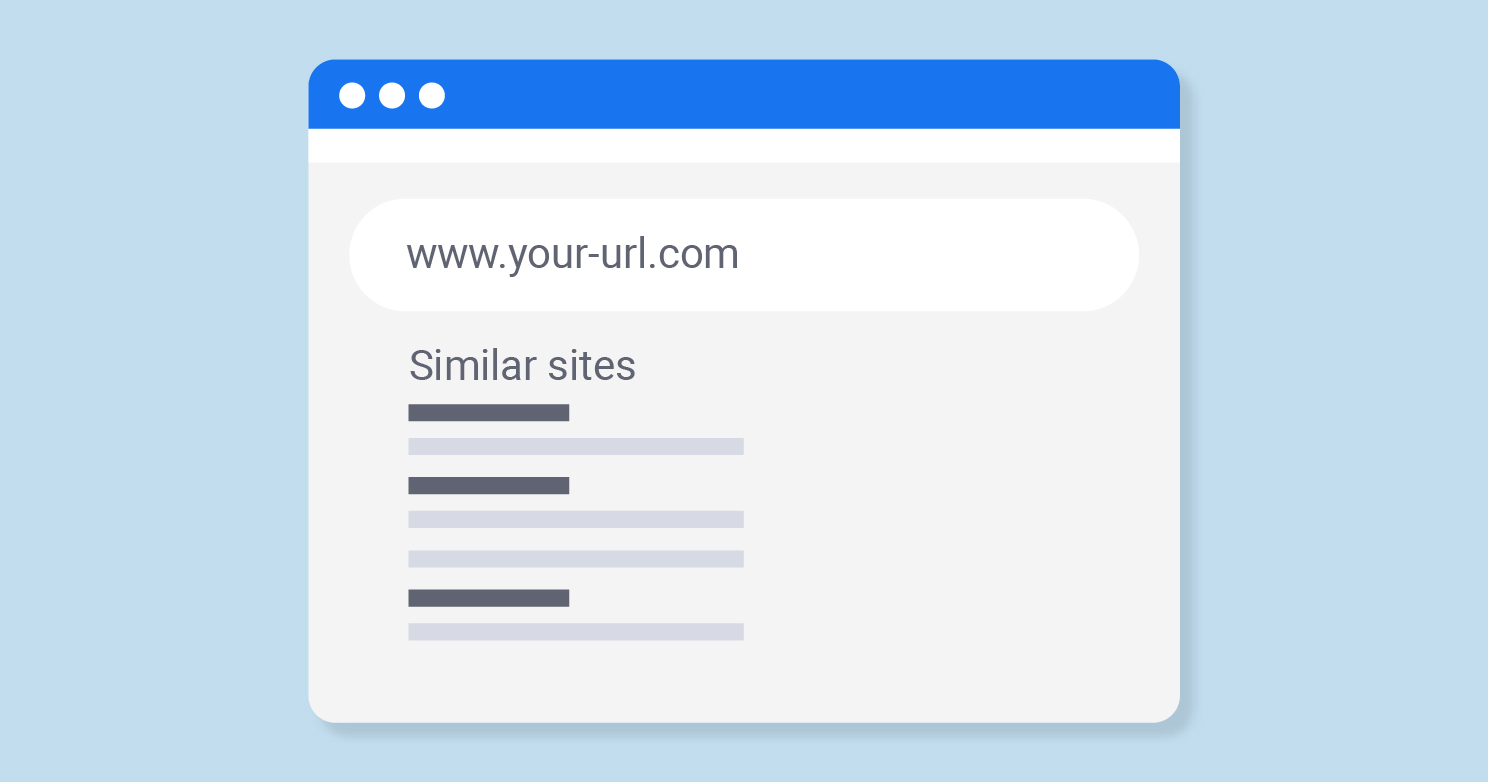
When we decided to answer these questions, other possible queries came our way: ' How should a person define their niche?' and 'Why is it important to have a thorough understanding of one's niche, be it business or blogging or both?'
So, let us move forward and get some questions answered.
Understanding your Niche
As one can clearly see, when you are looking for new websites in your niche, it is essential to have a thorough understanding of your niche to pick the ones that truly resonate with your expectations. A niche is often misunderstood as a field or industry, whereas it actually represents a specific focus within that broader context. It delineates the products or services you offer. A clear understanding of your niche helps refine your searches, target the right groups, and utilize strategies inspired by the right communities.
How to find your niche?
Many people find it hard to put their fingers on a specific niche and say, 'I belong here.' This is because of the ambiguity that prevails in business lines and vast focus. Vendors want to be here, there, and everywhere. The broader you define your goals, the less relatable you will be to your audience.
So, here are some tips for identifying your core business or, simply, your niche.
Try to answer the following questions
1. Where do my interest and expertise lie?
(Your interest and expertise should fall in the same line. If they aren't, then you either end up in the wrong niche or fail to make a mark of the right one.)
2. Who is my target audience?
(Have a grip over the demographics and psychographics of your audience and, more precisely, your buyers).
3. What is the USP of my product/brand?
(Your brand should have something that makes it stand out in the crowd.)
4. As for my business, what the future has in store?
(You must be aware of the current trends and understand their potential future to add value to your brand.)
If you have definite answers for the above, you will also have a clear answer to 'what your niche is.'
Why should you find new websites in your niche?
- Watching out for similar websites will give you an idea of what others in your niche are doing, understand their marketing strategies, product offers, and hits and misses.
- Content ideas are quite an obvious benefit of keeping an eye on your niche websites. You can also capitalize on the gaps that you find in their content.
- Niche websites provide a bounty for backlinks. They not only help with link building services but also open opportunities for strategies like guest posting, collaborations, and effective link insertion solutions to enhance your website’s SEO.
- Collaborations can help one build a worthy network and stronger community that cater to mutual growth and offer a source for fresh insights and perspectives.
- Niche websites also provide us with the latest trends, related news articles, and other updates. This helps one stay ahead in the game consistently.
- When it comes to knowing your audience's needs, you can sometimes hit rock bottom. You will never come a full circle in meeting your customers' expectations as needs are ever-changing. Peeping into your competitors gives you an edge over your audience and see what they are up to.
- Last but not least, niche websites can help you optimize the SEO of your website by picking the right strategies and better-ranking keywords.
If you only know the right tips and tricks, you can find a trove of sites in your niche.
You can also try Google Discover. To know more check out Google Discover!
Top 5 Strategies
1. Google It
Where else to go than Google, the Know-it-all search engine? This is the obvious and easiest way to pick some authentic niche websites. Google is designed to provide the most relevant content based on the keywords. However, you can go a step further and refine those details by using targeted search queries or Google's advanced search operator.
A. Targeted search queries mean running a search using more precise keywords that match a cent percent of the search intent. For instance, if you are looking for content about mental health targeted for a specific age, instead of searching 'health blogs,' you could run the following search 'mental health blogs for teenagers.'
B. You could also use the Boolean Search method to filter the search results and get your hands on the right pages.
"mental health" AND "blogs" AND "teenagers" AND "addiction"
– the search engine will look for these exact phrases.
"mental health" AND "blogs" AND "teenagers" AND "addiction" NOT "self-help"
– will exclude results oriented with or talking about 'self-help.' You can simply use the minus sign to get the same effect.
"mental health" AND "blogs" AND ("teenagers" OR "youth") AND "addiction" – to control the logic of the search.
Furthermore, you can use site: command (like site:example.com) to search within a particular website or related: command (like related:example.com) to find websites related to a specific URL.
C. Google Advanced Search
Using the advanced search option by Google is the wisest tool for laypeople who lack the knowledge of placing targeted search queries. Instead of running a search and refining it repeatedly to get your intended results only to quit the pursuit after a while, Google's Advanced Search option is like filling out an application. Just enter your requirements and feel like a pro when Google blinks out niche websites.
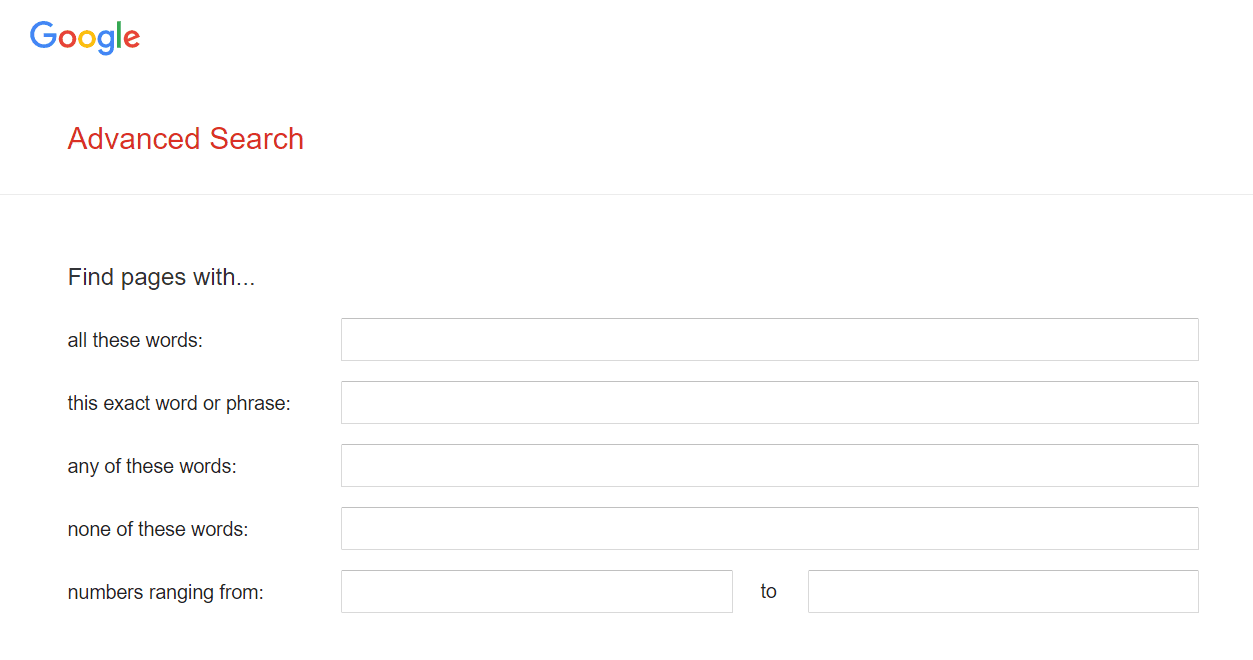
2. Social Media – the easier weapon
If social media handles can connect you with people, they can link you to websites as well. Social media is a cornucopia of niche-based websites. It helps you unite with like-minded people, find resources relevant to your vertical, and reach a wider audience. Knowing the nuances of the platform and how it works helps in uncovering rich resources. This can include learning how to use a Twitter scraper or how to use ads on this platform and so on.
Quick tips
- Using Targeted hashtags is one way to find the content you are looking for. Hashtags group the relevant data available on a specific platform. This strategy works with YouTube, Twitter, Instagram, LinkedIn, and almost every other platform. For example, "#nanotechnology" will list posts and accounts related to it.
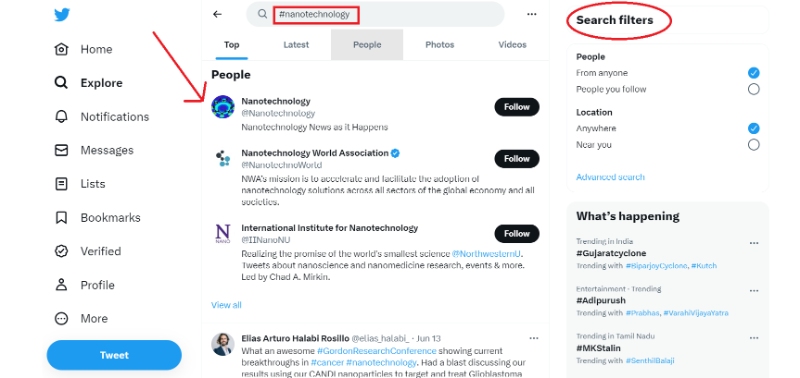
- Facebook and LinkedIn connect you with preferred groups and communities with people who share useful resources and website links. Using this, you can sieve the websites that match your niche.
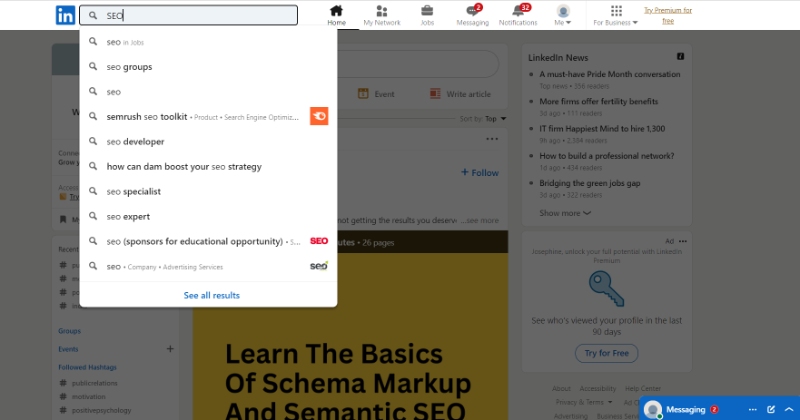
- Every niche has a creamy layer consisting of industry leaders and influencers who contribute lorry loads of content. You can grab a handful of worthy websites by following their blogs and engaging with these experts. Such information shifts your business and helps you secure a coveted market position.
- Attending webinars and industry events can introduce you to a new world of contacts and their website details as well.
The key to unlocking the true potential of a social platform is to stay active and engaged. Prolonged and steady engagement turns any platform into a worthy database.
3. Directories and Forums
If you are ready to dig harder, we must tell you that niche-specific directories and forums are the goldmines you are looking for. Needless to say, certain online databases do not turn up for standard search engine queries. Please don't ask us why. All we can say is you can still access it when you know it is there somewhere.
These online directories act as a catalog and help you find websites categorized according to your niche. Directories also contain links to websites, blogs, articles, and other sources. Though not all, a few directories do require a fee to access them. Some popular online directories are DMOZ (now Curlie.org), Business.com, Jasmine Directory, and VLIB, the oldest on the web.
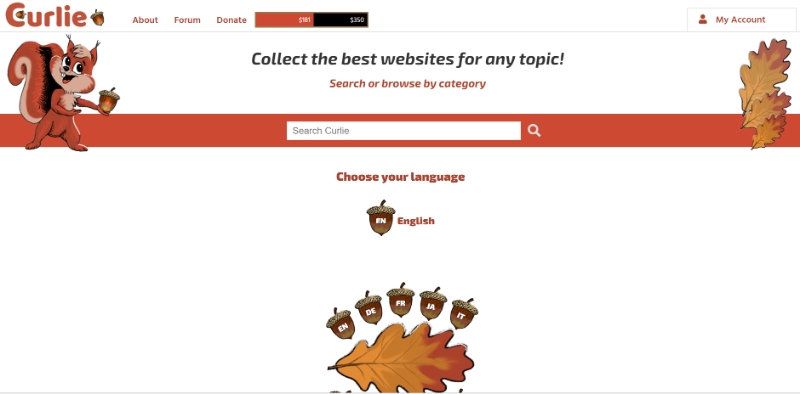

On the other hand, forums are interactive platforms that let a user connect with people and carry out discussions. Such platforms help in solving queries, sharing niche-related grievances, and seeking solutions. For instance, Stack Overflow is a popular QnA-based website for Programming related queries.
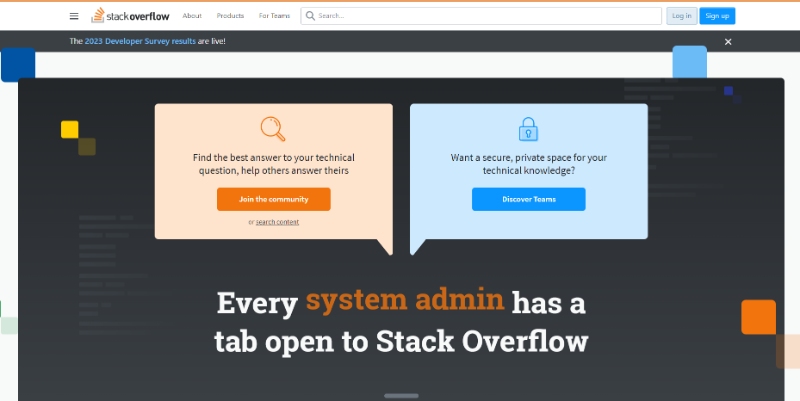
While others like Quora and Reddit are more versatile where anyone can ask anything. Reddit additionally has a collection of web content flowing with posts and related links. One can become a part of a specific area of interest called a subreddit to engage and discuss with people of similar interests.
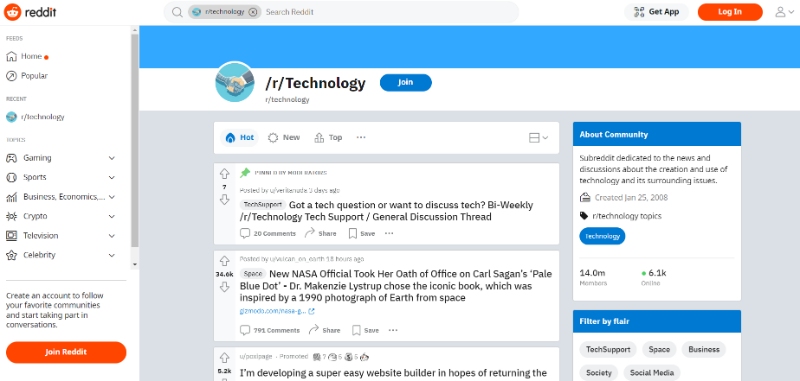
Something Awful, a lesser-known yet great platform, houses anything humorous and is a big-time contributor to the internet culture.
4. Bookmarking and Content Curation Tools
This is a fun way to explore websites ruling your niche. Tools like Pocket, elink, and Pinterest are quickly accessible alternatives to finding new yet bankable websites in your niche. The pocket app has created a space for articles that have global recognition. The app can curate your home feed according to your preferences. Every time a new article of your favorite niche appears on the app, a mail invades your inbox to inform the same. Isn't this a terrific way to discover new sites with trending information, bookmark, and keep track of your favorite ones?
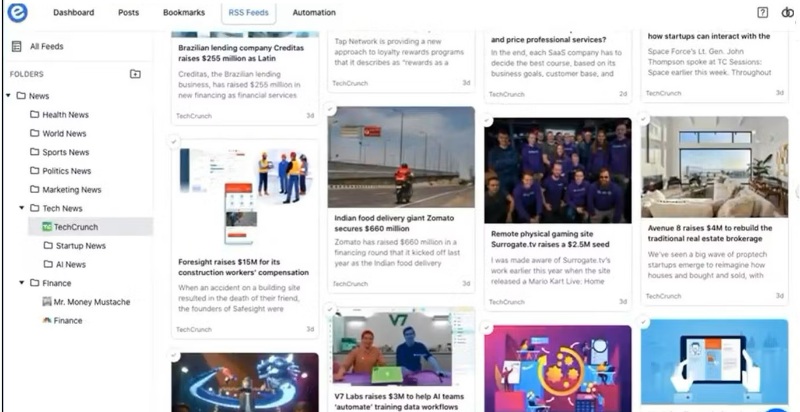

5. Competitor's Backlinks
Another tested method is analyzing the backlinks of your competitors. This strategy is important as it aids in understanding the content that earns links and space for potential link-building opportunities.
So here is how it works:
1. The first step is to identify your ideal competitors.
2. Analyze the links from other websites that point to your competitors' sites. This is how a website gets to the SERPs and builds authority.
3. Use tools like Ahrefs, SEMrush, or Moz to analyze backlinks. They also show the quality of these links and the anchor text used.
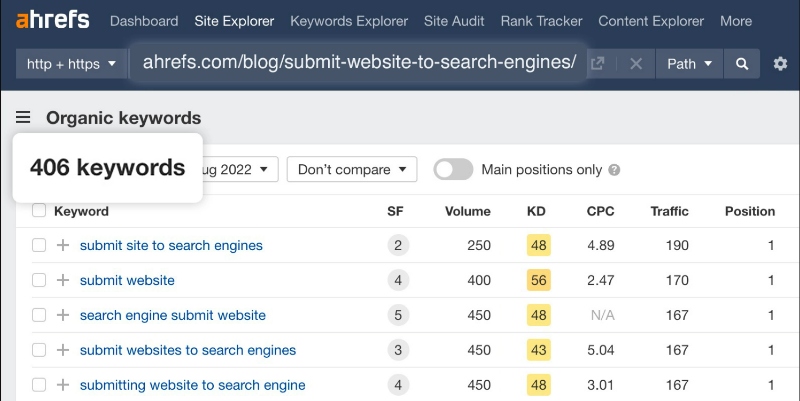
4. The final step is to leverage this information and create media-rich high-quality content that these websites might link to.
Backlink analysis is like hitting two targets with one arrow. First, you find new websites in your niche linked to your competitors' websites, and second, you learn to create backlink authority. Keep in mind that you are not aping your competitor's web authority. You are simply learning the route to authority, framing a unique strategy to build your own backlink profile and partnering with an SEO Reseller can help you accelerate this process with expert link-building support.
Artificial intelligence is another go-to choice for you to research for the perfect niche before starting to work on a website. For example, consider the working of an AI answer generator, which is an AI-based tool that helps to answer questions asked to it. Using the tool, you can also enter a prompt and ask about the niche that would be profitable for you to work on. You can get a detailed guide to understand, think about, and then work on a niche. Indeed, it can be your companion to search for the right domain to focus on.
You might also like: How to Check if a Website is Available?
A word before leaving…
Finding new websites in your niche isn't rocket science anymore. You can move mountains using the strategies, tips, and tools mentioned above. Stay open-minded, and feel free to explore new avenues. Who knows, the door that is knocked on the least might open a room to invaluable treasure.